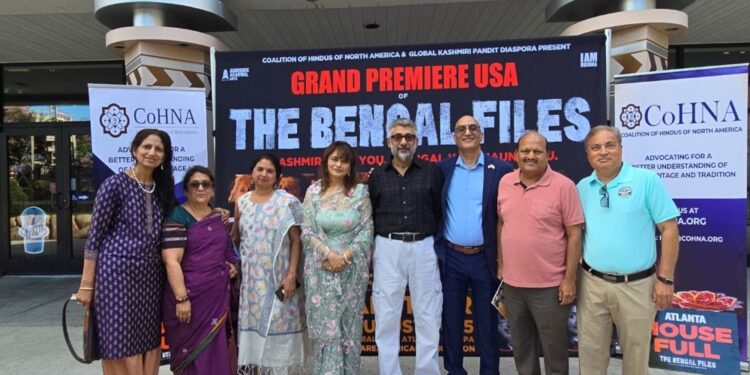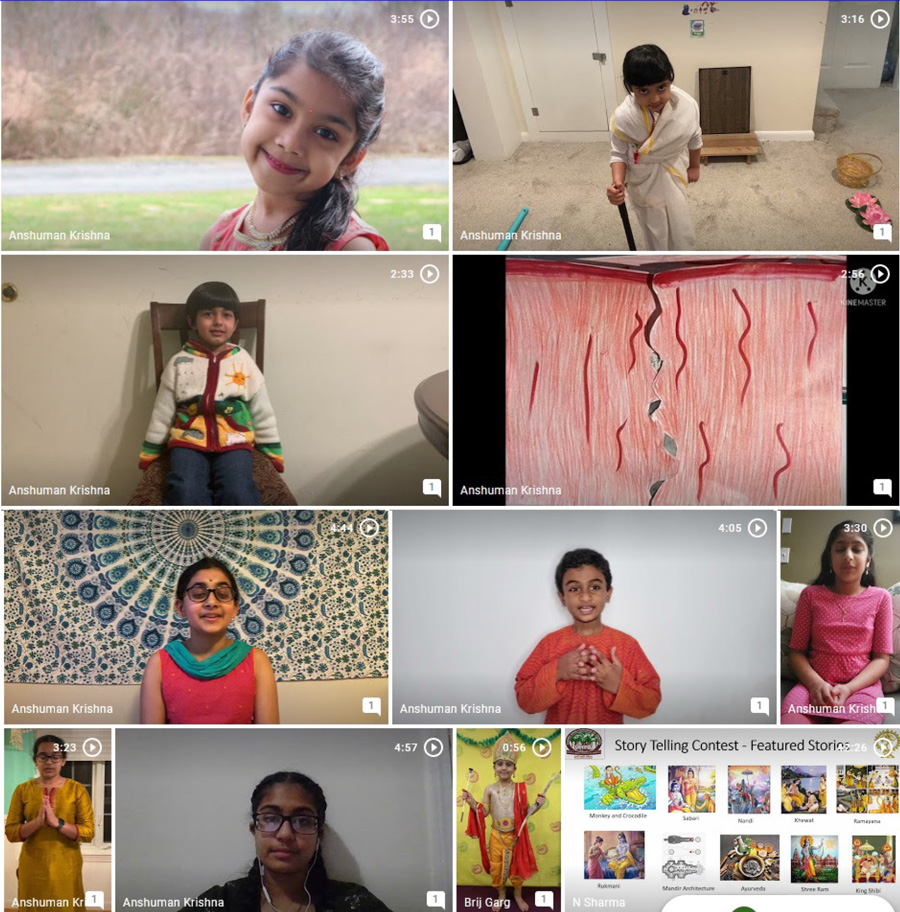Editor’s note This interview with VHPA was recorded during the screening of The Bengal Files in Atlanta.
After the success of The Kashmir Files, which sparked global conversations about the forgotten plight of Kashmiri Pandits, filmmaker Vivek Agnihotri has turned his lens toward another overlooked chapter of the Indian history: Bengal. His recently released film, The Bengal Files, explores the untold stories of persecution, partition, and continuing communal violence in the region. In this conversation, he reflects on the motivations behind the project, its contemporary relevance, and the challenges of telling truths long buried under political and media silence.
Can you please tell us briefly about the new movie The Bengal Files?
While researching for Kashmir files, I realized that Hindu community is the most persecuted and enslaved society in the entire world. We were persecuted for 1200 years, and nobody knows about it. And I realized that a Jew child knows about Holocaust, black people know about slavery, but we don’t know. I don’t know why this history was not told. Also, the history of partition was never correct. We always showed the Punjab stories. Never showed the Bengal. The playground for partition was Bengal. And also, generally the people believe that if somebody is in majority, he has to be the persecutor, he has to be the oppressor and minority is always right. But in India’s case, it’s a very strange story, because the minority, which basically attacked Kashmiri pandits, which attacked Hindus, and they took away part of India away from us, they won the war. So it was very important to change the narrative and let people know that his majority can also be victimized. So therefore it’s a very important story. Also, I wanted to impress upon the audience that the communal violence which caused all these things is still continuing in Bengal, like in Kashmir, it’s still continuing. We have seen in Pahalgam what happened. And so it’s true, and until we stop this communal violence instigated by one party which calls itself minority, but in reality, it is the second largest majority of India. Nothing is going to change.
How does this movie relate to the events happening in Bengal these days?
The strategy which they adopted for partition, same strategy they adopted in Kashmir – change in demography inch by inch, inch by inch changing culture, using violence, using terrorism, same strategies being adopted in Bengal. Therefore, in my film, the hero, the protagonist to the Kashmiri Pandit who goes there realizes that it can become Kashmir anytime. If anyone else, if a normal person goes, he won’t realize it, but because he’s a victim himself, he goes there, he understands the laws of Bengal, and he warns people that it can become another Kashmir.
The recent events in Bangladesh, you know, kind of are similar in a way, do you think that there is an audience for this movie in the Bangladesh?
Yes. In Washington DC, so many Bangladeshi people came to see the film, and they were crying. They were narrating stories. So many Bangladeshis are connecting with me all over the USA, and I’m sure this will work if Bangladesh allows it to release.
We’re very disappointed with the role of media in Hindu genocide, and they have tried to put it under the rug. What are your thoughts on that? Why is the media kind of not telling the true story?
See, media in India is mostly leftist and communist, and these leftist communists have made a nexus with Islamists. So in India, we have a communist, leftist and Islamist nexus. See they never wrote anything against the terrorists in Kashmir, they never even mentioned Kashmiri Pandits, somehow, I don’t know why, and most of these communists are Hindus and Brahmins on top of it still they don’t. It’s very sad commentary.
I know it’s very sad. Obviously, your movie is a message to all the Hindus who are staying silent against this persecution, do you think this is going to wake up the sleeping giants?
I have decided to wake them up. And if, after seeing this film, which is such an intense film, if they don’t wake up, I don’t think they can ever wake up. You know, they will never wake up. So it’s very important, that’s why I made this film. But also, on the other hand, I think people also want to say this, it’s their voice. So what I have done is, I’ve absorbed their voice and articulated it in form of cinema and I presented it to the world, the collective voice of Hindus who are awakened, who want to talk about it, but cannot talk about their trauma because whenever they talk about their trauma, people say, “Hey, shut up, you are the majority”. So we have fallen into the western style of thinking that you are majority so you can’t be victimized. But this one will open up lots of wounds, and ultimately it will heal lot of people like Kashmir files did.
The last question, what motivates you to do this? Obviously, you have to face a lot from the people who manage these movies and politicians and all that but you still do this?
I am very angry. I know that India has the potential to lead the world and be one of the most successful countries, but India takes two steps forward. goes four steps backwards because of this communal violence, and many states are empowering these communalists, these Islamist forces. In Kashmir it happened and in Bengal it is happening. And also in other places it’s happening. So like there was a dialog in the Kashmir files, and which is true, “sarkar kisiki bhi ho system to unhika hai” (Irrespective of whose government it is, system is theirs”




![[ India Today ] Ohio senator JD Vance thanks wife, a Hindu, for helping him find Christian faith](https://hinduvishwa.org/wp-content/uploads/2024/06/us-senator-jd-vance-reveals-how-his-hindu-wife-usha-helped-him-find-his-christian-faith-image-re-272530504-16x9_0-120x86.webp)










